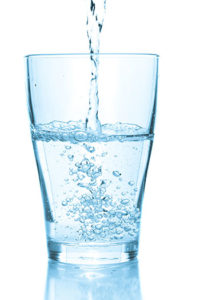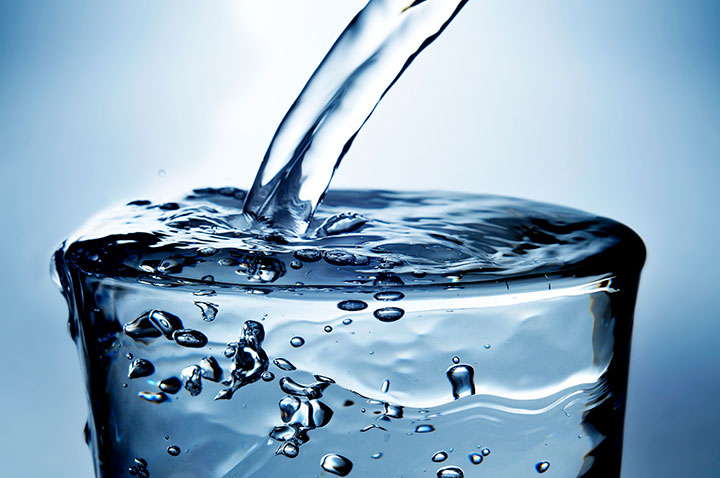Clean water is essential for life. We need it to drink. It’s essential for cooking. And we couldn’t clean without water. Without clean water, we would struggle to maintain our health.

In fact, water filtration is essential for remaining in control of what chemicals are able to cross over from your water into your home.
Do you want to ensure you and your family have access to the purest water available?Read our guide to water filtration methods to learn what’s in your water and how you can remove it with the help of a water filtration system.
What’s In Your Tap Water?
Tap water is safe in many places, but that doesn’t mean you’re not ingesting impurities.
Indeed, depending on where you live, you might be drinking bacteria, chemicals, and debris floating around in your municipality’s water system.
1. Chlorine
Chlorine is added to water to make it safe because its toxicity kills bacteria and microbes that might otherwise make you sick.
We need chlorine in our water to prevent the spread of illnesses through drinking water.
But that doesn’t mean you want to drink the chlorine.
A study published in Epidemiology examined 141,000 births in Norway. The researchers found that children who lived in places where chlorine was added to the tap water experienced a 14% higher risk of having birth defects. Urinary tract abnormalities doubled.
So while chlorination is the widely accepted way of cleaning water, it should still be filtered out before you drink it, particularly if you live in an area where trihalomethanes (THMs), developed by the combination of chlorine and organic matter, tend to fluctuate.
2. Fluoride
Many cities add fluoride to their water as a public health measure. But not everyone needs the extra fluoride.
While the fluoride added to your water won’t hurt you, you can still choose to filter it out.
3. Lead
Lead is another contaminant that can show up in your tap water. Old pipes, cost-saving measures, and disregard for public health can all lead to lead levels above the legal limit.
If we’ve learned anything from the Flint water crisis in Michigan, lead-contaminated water can be devastating to community health. Moreover, investigations into the affair have revealed that you can’t trust your local government to care for your water.
Protecting yourself and your family from contaminated water is your responsibility. A water filtration is the best way to protect your water no matter where you live.
4. Nitrate
Nitrate forms naturally when nitrogen is combined with oxygen. All living things need nitrate, and it’s found in your drinking water. In fact, nitrate forms naturally at the surface, particularly in groundwater and well water.
However, when nitrate reaches high levels, it can be dangerous, particularly for pregnant women and children.
High levels of nitrate can be caused by fertilizers, industrial waste, septic systems, poor well construction, and the improper disposal of waste.
If you live in a rural area and get your water from a well, you should have your water tested at least once a year to make sure your water quality hasn’t changed. Continue to have it tested even when you’ve purchased a water filter system.
Nitrate can be removed through distillation and water filtration methods.
5. Viruses
Water-transmitted viruses can carry infectious diseases. Hepatitis A, norovirus, and rotavirus can all be transmitted through water. In most cases, these viruses enter water through animal or human waste.
In most cases, you won’t find these in your drinking water in the city. Water is treated for viruses and it’s routinely monitored in urban areas.
Filtration provides an extra layer of protection for tap water drinkers. It’s certainly recommended for rural water protection.
However, it must be noted that boiling is the only treatment that is 100% effective in destroying pathogens.
These are the five most common types of water contamination. But what else can you find in your water?
- Arsenic
- Copper
- E. coli
- Enterovirus
- Radon
- Salmonella
- Shigella
Benefits of a Water Filtration System
Your water may contain any number of potentially harmful chemicals or organisms. We’re not saying that to scare you. After all, most tap water is treated and safe to drink.
But there are more benefits to a water filtration system than clearing those last few impurities from your water.
1. It protects the environment.
Having access to safe water at all times means you don’t need to worry about buying bottles of water on a regular basis.
If we buy fewer bottles of water, we can reduce the number of plastic bottles that end up in landfills.
2. Water filtration saves money.
If you don’t need to buy water every week, you can rule out an additional bill.
Filtration systems also reduce plumbing bills because the heavy metals and chemicals that damage your pipes are filtered out.
3. It protects you from disasters.
Water can be contaminated from any number of sources. Burst sewer lines, dumping, and run-off can all result in a loss of access to clean water. Having a filtration system protects your home from losing access to water.
4. You need less soap.
Without the added chemicals and natural impurities, your water becomes softer. Softer water doesn’t leave the minerals behind that counteracts the properties of soap.
So, you’ll need to purchase less soap for the shower, the kitchen, and the laundry room, which saves you money and a trip to the shops.
Types of Water Filtration Systems
Government safety standards keep city water in check – well water is another issue.
However, those requirements still allow chlorine and fluoride into your drinking water. And while they won’t do major damage to your health, you can still create cleaner, purer water with a water filtration system.
Plus, you can avail of all the other benefits of filtered water like money savings, protecting the environment and enjoying softer water.
But what is a water filtration system? Are we talking about a Culligan water filter, an attachment for your tap, or a giant tank in your basement?
Here’s a look at three types of water filtration systems:
1. Pitcher and Faucet Systems
These are the two most common kinds of water filtration systems. They’re cheap, easily accessible in most retail stores, and easy to use.
While these systems are better than nothing, they also don’t remove all the contaminates from the water.
Also, these systems may cost less initially. But you’ll need to replace both the filter and eventually the pitcher over time.
What’s more, they’re designed primarily for making tap water taste better. They won’t protect the water you brush your teeth with or the water you bathe your kids in.
2. Reverse Osmosis Systems
The next step up from a pitcher or faucet filter is a reverse osmosis water filtration system.
A reverse osmosis system is usually comprised of a tank found under your kitchen sink. Reverse osmosis uses a pump to reverse the effect of osmosis.
Basically, the tap water will pass through a membrane while the contaminants are held back. They can remove up to 99% of pollutants, which is great. However, reverse osmosis also goes too far and may remove minerals that benefit us.
But overall, reverse osmosis systems require little maintenance, improve water quality, and are an easy way to protect your family’s drinking water.
3. Water Distillers
Home water distillers purify water for your kitchen by linking directly to your water supply. The purified water is then held in a stainless steel tank capable of holding 10 gallons.
This is the most comprehensive system you can get for your home, and while it’s an investment, it changes the way you use your water.
The system works automatically, so you never need to worry about running out of clean water or forgetting to buy filters.
Our system is particularly easy to use. It doesn’t require drain access, which makes it easy to install. There’s also a removable boiling chamber and fully accessible reservoir. Both of these make cleaning the system simple.
A home water distiller is a way to get clean water for pennies per gallon.
Water Filtration Systems Make Life Better
Protecting your water is akin to protecting your health. Water is the giver of life, and unfortunately, it’s something you often need to do yourself.
A water filtration system is an essential part of protecting your water by removing extra impurities or even protecting you from a crisis should your water source be contaminated.
A reverse osmosis system or a home water distiller are your best bets for truly clean water.
30 Day Free Trial
Access to clean, safe water is essential for health. Let us show you what filtered water tastes like for 30 days with no obligation.
Experience the difference. Start your free 30-day trial today.


Leave a Reply